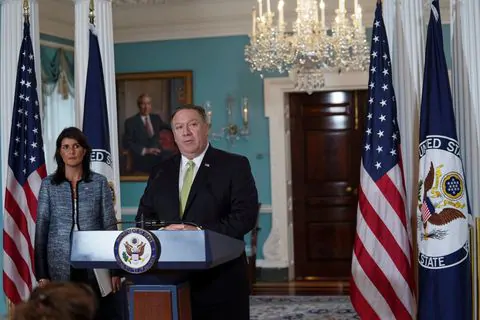It is wrong to withdraw from the UN Human Rights Council instead of supporting its reform
July 21, 2018

Ted Piccone – Brookings Institute
There should be little debate that promoting respect for human rights around the world is in the vital national security interests of the United States. Its greatest threats emanate from places where human rights and democratic governance are weak to nonexistent. Think North Korea, Iran, Russia, China, and Afghanistan.
But there are credible arguments and debates over how the United States, for now the world’s most powerful nation, should protect human rights. The best answer is that the United States should address the glaring gaps in respect for human rights in two ways: by living up to its own principles at home, and by using its considerable leverage—with its democratic allies—to cajole other governments to abide by the universal norms they all have adopted since the end of World War II. The Trump administration has demonstrated since its start a failure to do either.
Secretary of State Mike Pompeo and U.S. Ambassador to the U.N. Nikki Haley’s scathing, though predictable, critique of the United Nations’ main body for promoting and defending human rights is yet further evidence that this administration has no real interest in doing the hard labor required to be a leader on human rights. Instead, it prefers to retreat from global leadership on this and a host of other key issues in order to resurrect a narrow and ultimately self-defeating definition of national sovereignty. “[W]hen organizations undermine our national interests and our allies, we will not be complicit,” Secretary Pompeo declared when he announced the decision to withdraw from the U.N. Human Rights Council. “When they seek to infringe on our national sovereignty, we will not be silent.”
This telling remark illustrates that this administration’s North Star is toward a nostalgic past in which states had greater independence from international laws and multilateral diplomacy. Its calculation is that the United States is better able to protect itself from the world’s challenges by acting unilaterally first, and with others only if it must. This turns on its head the longstanding consensus that Washington should work with others to secure peace, and alone if it must.
The U.N. Human Rights Council is a good example of how these dynamics play out amid the realities of the post-Cold War international liberal order. Born of a recognition that the U.N. needed to move beyond the East-West divide that had hampered effective progress on human rights, states agreed in 2006 both to widen and deepen the agenda for cooperation. The new council would continue to examine critical country-specific situations while establishing a new process for scrutinizing the human rights records of every state, including the United States.
About the author: Senior Fellow – Foreign Policy, Latin America Initiative, Project on International Order and Strategy Charles W. Robinson Chair
.
.
